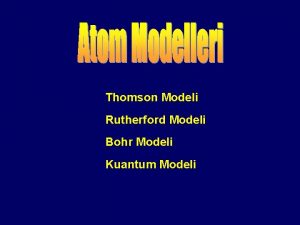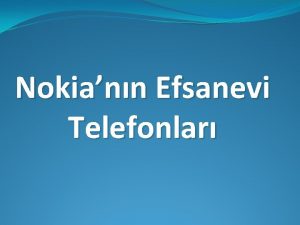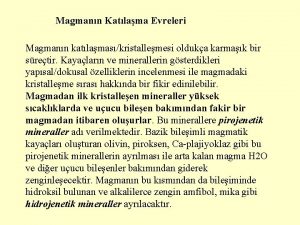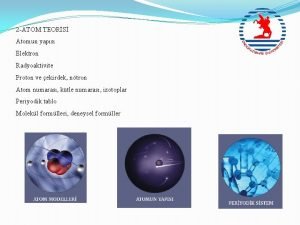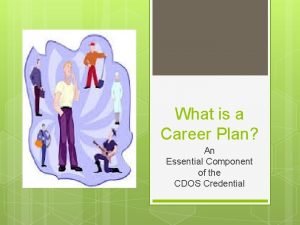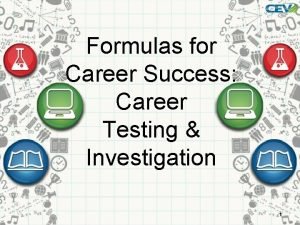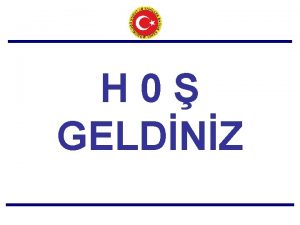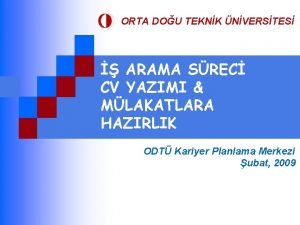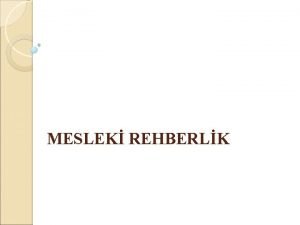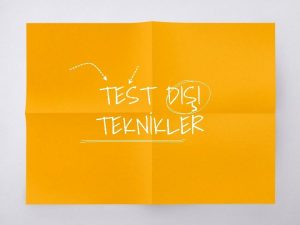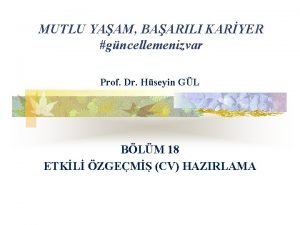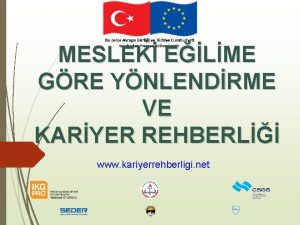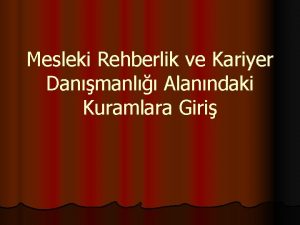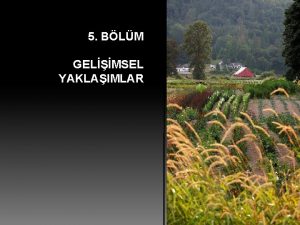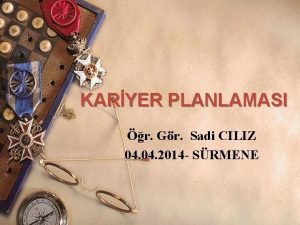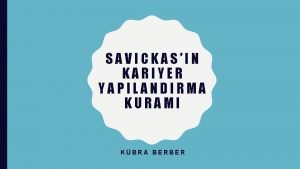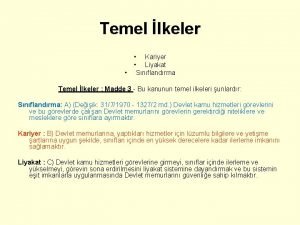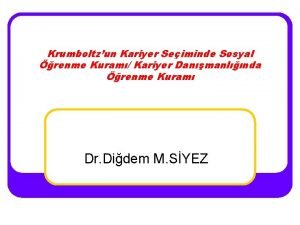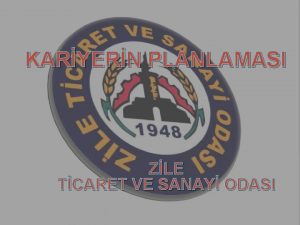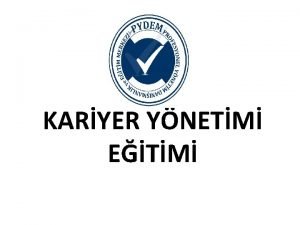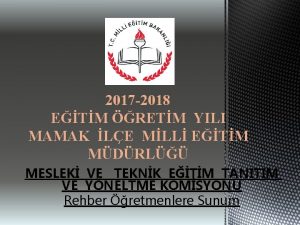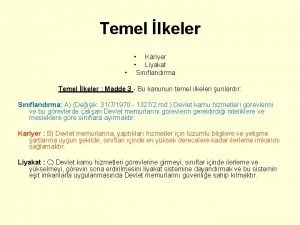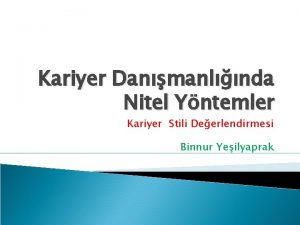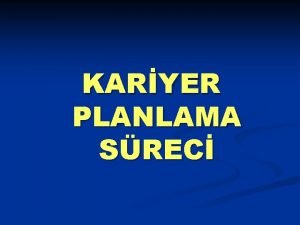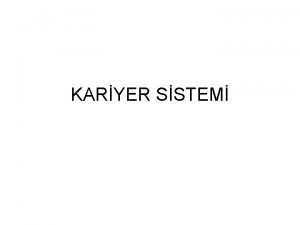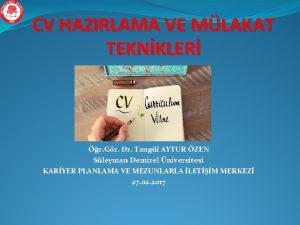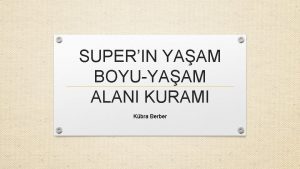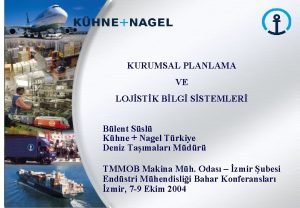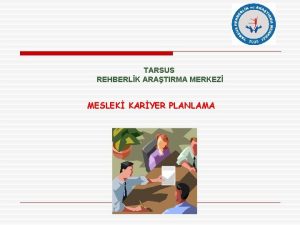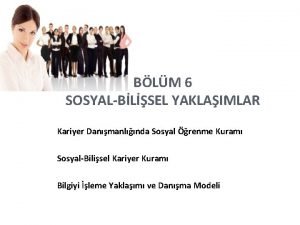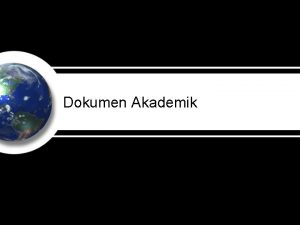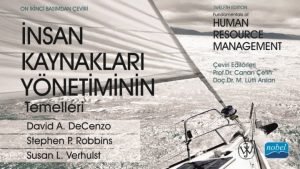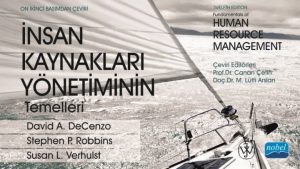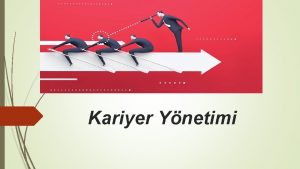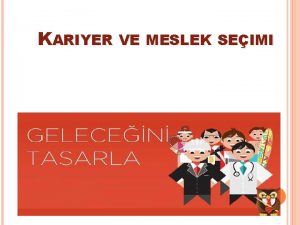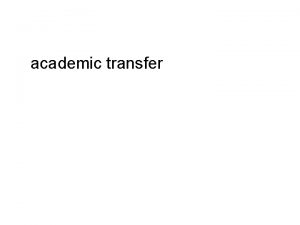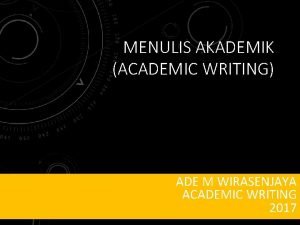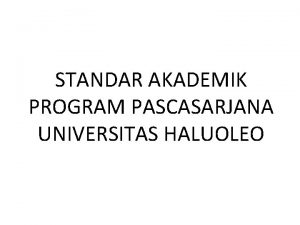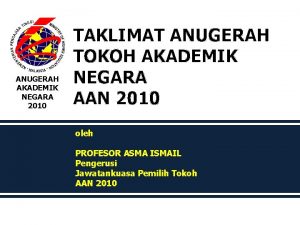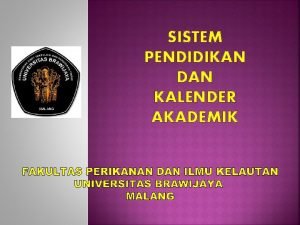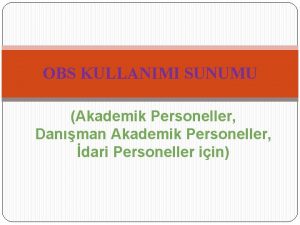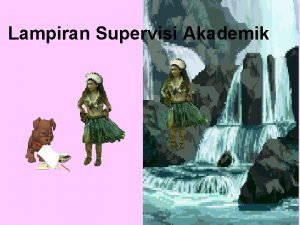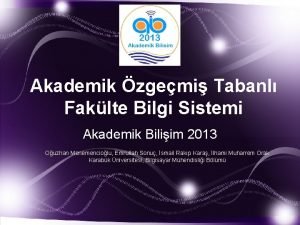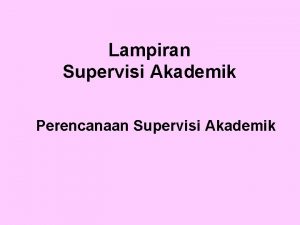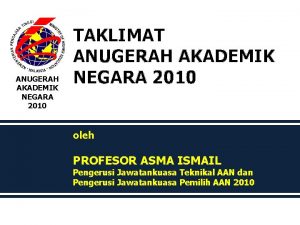Ingilterede akademik kariyer serisi Academic career in the































![Five common writing mistakes new scientists make [https: //contemplativemammoth. com/2018/08/21/five-common-writing-mistakes-new-scientists-make/] ● The passive voice Five common writing mistakes new scientists make [https: //contemplativemammoth. com/2018/08/21/five-common-writing-mistakes-new-scientists-make/] ● The passive voice](https://slidetodoc.com/presentation_image_h2/5fd3e18087a598a62e349dd546462758/image-32.jpg)




- Slides: 36

Ingiltere’de akademik kariyer serisi (‘Academic career in the UK’ series) – part 1 � Genel olarak doktora sürecinde nelere dikkat etmeliyim? (General comments on doing a Ph. D) ◦ ◦ Advanced postgraduate review (APG) Sunum yaparken dikkat edilecekler (How to do presentations? ) Tez yazarken dikkat edilecekler (Writing a Ph. D thesis) � Makale yazarken dikkat edilecekler ve prosedür (Writing and publishing papers) � Akademik kariyer (a career in academia) � ◦ ◦ Postdoc Lectureship ya da fellowship CV düzenleme ve geliştirme (structuring your academic CV) � Personal statement yazma (writing a personal statement) � Pre-, intra- (during) & post-interview � Hocanızla ilişkiniz nasıl olmalı? (dealing with your supervisor) � ◦ � Spesifik problemler ◦ � Ingiliz kültürüyle ilgili gozlemlerim (my views on British culture) Mental wellbeing Time management ◦ ◦ ◦ Akademik/entelektuel olarak kendini geliştirme (developing yourself as an academic/intellectual) Coursera/MOOCs Social media 19/07/18 A. Mesut Erzurumluoglu

Intra- and Post-Ph. D - My general comments on doing a Ph. D and being a Postdoc - Finding a postdoc job - Application process - Interview – my experiences - Transition to (hopefully successful!) Postdoc - Fellowships/grants Search for “postdoc life” in Google Images 19/07/18 A. Mesut Erzurumluoglu

Ph. D Analysis g in ain /tr Reports/Writing Pie charts for time spent on different tasks Ph. D: Improve yourself and make a small contribution after 3 -4 years. Expected: 1 -2 papers submitted/published g din a Re Trying stuff out (flexible) Higher expectations & limited time Senior Academic post Tr yin R Extra g s eadin s g tuf fo ut Postdoc Developing pipelines and analysis (getting ‘jobs’ done on time) Source URL for bottom two (adapted) figures: http: //www. vandermeerlab. org/Mvd. M_So. You. Want. To. Be. An. Academic. pdf Dr. title Postdoc: do a lot of analyses and produce results timely. Expected: a paper year + input to 23 side-projects

General comments on Ph. D life � � � Make full use of Coursera and MOOCs (esp. Medical Statistics, UNIX, R and Python Programming) Be grateful. You’re not just doing a Ph. D – a fully-funded Ph. D at a top university. Very prestigious! Don’t forget that you’re doing a Ph. D – the top academic degree! Be cognisant of this and don’t be shy or think that you don’t deserve to be here – you all do! Show that (i) you have the potential to be an expert in the field and have the skills to work at a top research group, (ii) can get the job done, (iii) you’re willing to learn, and (iv) without being cynical or a total sceptic, you can be a critical reader. I think these the best skills you can gain from doing a Ph. D. Try to know everything that goes on in your specific field. Read papers and reviews but also follow blogs and twitter accounts that make this easier for you. If you’re saying “ there’s too much to read!” then you don’t know what your “specific field” is. But in case someone points out a paper that you haven’t read, don’t say “I haven’t seen it”. Say “I’ve printed it and didn’t get a chance to read it but it’s the first thing I’ll read when I get back to the office ” Make time to attend seminars and watch people give talks: ◦ ◦ Posture (eye contact? ) How many slides? Contents of slides – figures? Q&A style Listen to people from different fields; sometimes not even vaguely related. Gives you a sense of what the world needs and where it’s going. � Read before viva: 'It's a Ph. D, not a Nobel prize': how experienced examiners assess research theses � “First impression is last impression” applies to everything. Try to make your first 2 -3 sentences in every section, and the (whole) abstract and discussion sections perfect. Pay attention to the preface of your thesis also – both aesthetically and grammatically. 26/07/18 � Have a very good relationship with your Ph. D supervisor(s) – will need their reference for a long time A. Mesut Erzurumluoglu �

Ingiltere’de akademik kariyer serisi – part 2 � Genel olarak doktora sürecinde nelere dikkat etmeliyim? ◦ ◦ APG Sunum yaparken dikkat edilecekler Tez yazarken dikkat edilecekler � Makale yazarken dikkat edilecekler ve prosedür � Akademik kariyer � ◦ ◦ Postdoc Lectureship ya da fellowship CV düzenleme ve geliştirme � Personal statement yazma � Pre-, intra- (during) & post-interview � Hocanızla ilişkiniz nasıl olmalı? � ◦ � Spesifik problemler ◦ � Ingiliz kültürüyle ilgili gozlemlerim Mental wellbeing Time management ◦ ◦ ◦ Akademik/entelektuel olarak kendini geliştirme Coursera/MOOCs Social media 27/07/18 A. Mesut Erzurumluoglu

Career progression – what’s next? �Start thinking about what you want to do a year before submission date: postdoc or industry or something else ◦ Read Wellcome Trust Basic Science Career Tracker (2013) & check MRC Interactive career framework ◦ Talk to your supervisors/senior friends about prospects ◦ Look at fellowship calls and deadlines �Fellowship (and grant) applications: I did one grant (rejected after 2 nd round) and one fellowship application (pending) and learned a lot from the process (e. g. priorities, structure, content) �Fellowship application takes >1 month to prepare and very tough to get �Grant applications take much longer and even more competitive

URL: https: //mrc. ukri. org/skills-careers/interactive-careerframework/

Applying for Postdocs � Where to look? ◦ Dept. emails, Twitter, Findapostdoc. com, jobs. ac. uk � When to look? � Which job? ◦ Start applying ~3 months before submission date ◦ Submission date is the crucial date for employers ◦ Matches skill set (but with training opportunities) ◦ ≥ 2 year contract ◦ Good “salary to cost of living” ratio �£ 30 k is very good in Leicester but not in London – definitely not in Manhattan! ◦ Interesting project? Nice city? Group size? � Apply to as many jobs as possible ◦ Can reject them afterwards if several acceptances

CV and Personal Statement Show CV and personal statement to Ph. D Supervisor and/or senior peers � Publications are key – have them on CV as early as possible � ◦ Include a short summary of what your role(s) was and make them sound impressive � Fill CV with relevant and concrete extras ◦ conferences/talks, skills gained from projects, reviewing, little grants here and there (e. g. mobility grants), courses/workshops attended (espec. statistical, programming related), teaching, supervision, membership to academic groups (e. g. Community Genetics Network), collaborations initiated, grant applications, awards � Be bold in the personal statement: “I can manage, analyse and interpret results from large-scale datasets (as evidenced by xyz et al). ” Do not sound like: “I have a lot of skills; might come in handy…” ◦ They’ll at least invite you to an interview ◦ Pre-application email: “Dear Prof/Dr. Xyz; I’m very interested in the post but was wondering (i) whethere were any training opportunities and (ii) how collaborative the group is. My CV and personal statement are attached. Kind regards.

Ingiltere’de akademik kariyer serisi – part 3 � Genel olarak doktora sürecinde nelere dikkat etmeliyim? ◦ ◦ APG Sunum yaparken dikkat edilecekler Tez yazarken dikkat edilecekler � Makale yazarken dikkat edilecekler ve prosedür � Akademik kariyer � ◦ ◦ Postdoc Lectureship ya da fellowship CV düzenleme ve geliştirme � Personal statement yazma � Pre-, intra- (during) & post-interview � Hocanızla ilişkiniz nasıl olmalı? � ◦ � Spesifik problemler ◦ � Ingiliz kültürüyle ilgili gozlemlerim Mental wellbeing Time management ◦ ◦ ◦ Akademik/entelektuel olarak kendini geliştirme Coursera/MOOCs Social media 10/08/18 A. Mesut Erzurumluoglu

CV and Personal statement tips �See my CV as a template: ◦ leicester. academia. edu/AMesut. Erzurumluogl u/Curriculum. Vitae � 1 -page ‘Personal statement’: ◦ A paragraph on “why you’ve chosen this field” ◦ A couple of paragraphs on “the skills you’d like to underline and why they’re relevant” ◦ A paragraph on what sets you apart from others �Writing high-quality papers? Wet-lab skills? Leadership? ◦ Final paragraph on “why you chose this group and project” – praise

Job interview “First impression is last impression” – always think of this. � If you’re giving a talk try to keep the introductions as short as possible and move onto the stuff you’ve done. Because they’re interested in the stuff you’re doing and not what others have done. � Never mention weaknesses or any problems you had with your supervisor – even if they ask nicely or act sincere… � Prepare diplomatic answers to questions like (Reviewer 3!): � ◦ ◦ � Always underline relevant skills (what they’re looking for – see appendix) ◦ ◦ ◦ � Where do you see yourself in 5 years? What do you expect from your supervisor? What’s the thing you least look forward to in your workplace? Didn’t you even have a little problem with your supervisor? Programming in R (or Python) Statistical knowledge Data QC experience Genetic/biomedical knowledge Wet-lab skills? Knowing how data is created… Dish out some praise - why I chose to apply? ◦ ◦ ◦ “I read your papers…” – show that you know what they’re working on “I want to be involved in cutting-edge projects…” Importance of trait/disease Impact (e. g. clinical trials) Training opportunities

What they’re looking for(? ) 1. 2. 3. 4. 5. 6. 7. 8. Essential: Strong programming skills Essential: Use bioinformatics tools Essential: Solid statistical background Essential: Genetic knowledge Essential: Write papers/grants Essential: Present results/attend conferences/Public engagement Desirable: Epidemiology knowledge Desirable: Supervise and teach

Relevant skills, achievements and experiences - Background BSc in Biological Sciences – Genetics (2007 -2011 Ph. D in Genetic Epidemiology (Feb 2012 -Nov 2015) Epidemiology, Statistics, Python Programming, Bioinformatics, Rare disease genetics, Teaching, Supervision Postdoc as Computational Biologist (Nov 2015 -? ) R Programming, Medical Statistics, GWAS & follow-up, Respiratory genetics, Teaching

Relevant Skills � Data analysis/management ◦ Strong Python and R programming skills ◦ Experienced Bioinformatician � UNIX/Shell scripts 1 2 ◦ Genotyping data � GWAS array � Deodorant-use GWAS (n=10 k) � Population genetics/haplogroups – below 1 -4, 7 � Exome-chip – rare coding variants (Erzurumluoglu et al, 2018) � Four smoking behaviour-related traits (n= up to 620 k) ◦ NGS data 1 -7 � Whole-exome sequencing � Primary ciliary dyskinesia (Alsaadi & Erzurumluoglu et al, 2014) � Papillon-Lefevre syndrome (Erzurumluoglu et al, 2015) � Population genetics 1 -4 ◦ Haplotypes � Fine-mapping method: HAPRAP (Zheng et al, 2017) ◦ Haplogroups 1 -5, 7 � Interaction between Y-DNA haplogroups & Psychiatric disorders � Howe et al, 2017 � Interaction between Y-DNA haplogroups & obesity-associated SNPs � Erzurumluoglu et al, 2018

Skills continued… �GWAS SNP follow-up (Wain et al, 2017) ◦ e. QTL colocalisation (e. g. GTEx, Blood, Lung) ◦ Functional annotation and variant effect prediction ◦ Pathway enrichment analyses ◦ ‘Druggability’ �Genetic correlation (Zheng et al, 2017) ◦ Automated bivariate LD score regression server: LD Hub �Presenting results ◦ Manhattan & Circos plots �Wet-lab skills

Increasing citation �Before publication: ◦ Cite papers in your field ◦ Preprint ◦ Conferences �After ◦ ◦ ◦ publication: Open access Present in conferences & meetings Share on social media Peer-review other papers in field Collaborate

Comment on Pub. Peer

Ingiltere’de akademik kariyer serisi – part 4 � Genel olarak doktora sürecinde nelere dikkat etmeliyim? ◦ ◦ APG Sunum yaparken dikkat edilecekler Tez yazarken dikkat edilecekler � Makale yazarken dikkat edilecekler ve prosedür � Akademik kariyer � ◦ ◦ Postdoc Lectureship ya da fellowship CV düzenleme ve geliştirme � Personal statement yazma � Pre-, intra- (during) & post-interview � Hocanızla ilişkiniz nasıl olmalı? � ◦ � Spesifik problemler ◦ � Ingiliz kültürüyle ilgili gozlemlerim Mental wellbeing Time management ◦ ◦ ◦ Akademik/entelektuel olarak kendini geliştirme Coursera/MOOCs Social media 17/08/18 A. Mesut Erzurumluoglu

Guidance for authors �Introductory guide for authors ◦ http: //publishingsupport. iopscience. iop. org /wp-content/uploads/2018/05/Author. Guide-V 9. pdf �Introductory guide for reviewers ◦ http: //publishingsupport. iopscience. iop. org /wp-content/uploads/2018/05/Reviewerguide-V 11. pdf �http: //blogs. nature. com/ofschemesandmemes/2 018/09/11/peer-review-week-2018 -creatingequal-opportunities-for-peer-reviewers-throughtraining

Peer-review process

Prestige as a Postdoc candidate Average papers v prestige gained 1 2 3 4 5 6 7 8 No of ‘average’ papers � Always aim for a high-impact paper! ◦ If not lucky enough, then try publishing 1 -2 ‘average’ papers before finishing your Ph. D �Shows that you can write papers but also ‘start-and-finish’ a project (very important skill!) �But don’t over-do it! It’ll give the impression that you’re an ‘average’ scientist and you’re happy to be one

Rules 1 -4 principles that apply to all parts of a paper (grants or posters) Rules 5 -8 apply to the main components of a paper Rules 9 -10 provide guidance on the process itself

Rules 1 -4 (Principles) Rule 1: Focus your paper on a central contribution, which you communicate in the title ● First element the reader encounters ● Focus on single message ● Thinking about the title early can help in designing experiments, developing theories and writing the paper Rule 2: Write for flesh-and-blood human beings who do not know your work ● Think like a naive reader ● Define technical terms clearly, avoid abbreviations and acronyms ● Minimize the number of loose threads that the reader has to keep in mind at any one time



Rules 1 -4 (Principles) Rule 3: Stick to the context-content-conclusion (C-C-C) scheme ● C-C-C as a default for scientific story structure (other structures are used in different contexts, e. g. newspaper articles) ● it applies at different scales: ○ whole-paper scale - introduction, results, discussion ○ paragraph scale - context, novel content, conclusion to be remembered ● reader interested in the ultimate claim and the logic supporting it - no need to follow the chronology of the experiments/analyses Rule 4: Optimize your logical flow by avoiding zig-zag and using parallelism ● minimise the number of subject changes - only the central idea of the paper should be touched upon multiple times ● related sentences or paragraphs should be strung together ● for example, if we have three independent reasons why we prefer one interpretation of a result over another, it is helpful to communicate them with the same syntax ● there is nothing wrong with using the same word multiple times in a sentence or paragraph

Rules 5 -8 (Components) Rule 5: Tell a complete story in the abstract ● in many case it is the only part of the paper that will be read - must convey message effectively ● follow C-C-C rule: ○ context - what gap the paper fills and why it matters ○ content - describe novel method/approach used; summarise results ○ conclusion - uses the results to answer the question described in the context ; may end with a broader conclusion (how this moves the field forward) Rule 6: Communicate why the paper matters in the introduction ● ● it highlights the existing gap and why it is important set of progressively more specific paragraphs no broad literature review beyond the motivation of the paper summarise results in the last paragraph

Rules 5 -8 (Components) Rule 7: Deliver the results as a sequence of statements, supported by figures, that connect logically to support the central contribution ● needs to convince the reader that the central claim is supported by data and logic ● sketch out the logical structure of how your results support your claim and convert this into a sequence of declarative statements that become the headers of subsections within the results section (and/or the titles of figures) ● title of the figure should communicate the conclusion of the analysis, and the legend should explain how it was done ● use C-C-C structure for each paragraph/piece of evidence Rule 8: Discuss how the gap was filled, the limitations of the interpretation, and the relevance to the field ● ● recapitulate the results discuss the limitations reveal how the central contribution may catalyze future progress the first discussion paragraph is special in that it generally summarizes the important findings from the results section ● weakness/strength of the paper


Rules 9 -10 (Process) Rule 9: Allocate time where it matters: Title, abstract, figures, and outlining ● useful to formalize the logic of ongoing experimental efforts (e. g. , during lab meetings) into an evolving document of some sort that will ultimately steer the outline of the paper ● spend more time on sections read by most readers (title, abstract, figures…) ● make an outline of the paper/individuals section Rule 10: Get feedback to reduce, reuse, and recycle the story ● it is important not to get too attached to one's writing - rewriting may be faster than reworking at times ● Because input from others is essential, a network of helpful colleagues is fundamental to making a story memorable. To keep this networking, make sure to pay back your colleagues by reading their manuscripts
![Five common writing mistakes new scientists make https contemplativemammoth com20180821fivecommonwritingmistakesnewscientistsmake The passive voice Five common writing mistakes new scientists make [https: //contemplativemammoth. com/2018/08/21/five-common-writing-mistakes-new-scientists-make/] ● The passive voice](https://slidetodoc.com/presentation_image_h2/5fd3e18087a598a62e349dd546462758/image-32.jpg)
Five common writing mistakes new scientists make [https: //contemplativemammoth. com/2018/08/21/five-common-writing-mistakes-new-scientists-make/] ● The passive voice is being used ● It is entirely likely that your prose is padded with extraneous, superfluous, or otherwise unnecessary additions; furthermore, the utilization of such redundant verbiage is arguably obfuscating your points (thus, in order to improve the clarity of your writing, it is highly recommended that you eschew such stylistic choices, including run-on sentences filled with fluff, padding, and filler). ● Your prose is redundant. You keep making the same point over and over again ● This use of unclear antecedents is inappropriate. ● I love cake. Your paragraph needs a topic sentence. ● Bonus #1: You changed tenses mid-paragraph, and/or your methods are written in the present tense. Repeat after me: methods will be written in the past tense. ● Bonus #2: You’re not following SI conventions. Ever written badly. No matter. Write again. Write poorly again. Write better

From Dr. Chiara Batini (Univ. of Leicester) ● read a lot of papers, understand what makes a paper a good paper (easy to read, solid scientific explanations, …. ), try and use that strategy for your papers too ● make it a good story to read - as much as possible ● read it, do something else for a few hours (or a day if possible), read it again, edit accordingly and then ask someone else to read it; incorporate feedback, read it again ● if the blank page is scary and you are stuck - try and change the section you are working on ● if starting from scratch, I would usually go in this order: Table and Figures, Material and Methods, Results, Discussion, Introduction

Ingiltere’de akademik kariyer serisi – part 5 � Genel olarak doktora sürecinde nelere dikkat etmeliyim? ◦ ◦ APG Sunum yaparken dikkat edilecekler Tez yazarken dikkat edilecekler � Makale yazarken dikkat edilecekler ve prosedür � Akademik kariyer � ◦ ◦ Postdoc Lectureship ya da fellowship CV düzenleme ve geliştirme � Personal statement yazma � Pre-, intra- (during) & post-interview � Hocanızla ilişkiniz nasıl olmalı? � ◦ � Spesifik problemler ◦ � Ingiliz kültürüyle ilgili gozlemlerim Mental wellbeing Time management ◦ ◦ ◦ Akademik/entelektuel olarak kendini geliştirme Coursera/MOOCs Social media 17/08/18 A. Mesut Erzurumluoglu

*Your ‘worth’ as a early career researcher h-index 1 st author papers in top journals Directly applicable Prestige of university Desirable Skills Funded Ph. D CV You/me Fellowship or (small) grant Knowledge Reference s Conference s Teaching English Female/BM level E Supervisio n Presentable *from funder/expert panel/PI’s view Other Directly applicable

Summary of key messages � You’re a fully funded Ph. D student at a top university � Don’t work like a postdoc. Take time to improve yourself (e. g. via MOOCs, blogs, papers) ◦ Concentrate on transferable skills: mathematics/statistics, data analysis/programming, writing, speaking ◦ Take time out to think about what you’re doing, what sets you apart � First impression is last impression’ ◦ Whatever people see first (e. g. you in an interview, title/abstract in a paper, type your name on Google), make those bits perfect! � Collaborate with people with different expertise � ‘Submitted’ paper is much better than ‘in ◦ Learn from others’ experiences progress’
 Lyman serisi
Lyman serisi Nokia lider
Nokia lider Bowen reaksiyon serisi
Bowen reaksiyon serisi Balmer serisi dalga boyu hesaplama
Balmer serisi dalga boyu hesaplama Pretest: developing an academic and career plan
Pretest: developing an academic and career plan National career clusters framework
National career clusters framework Formulas for career success
Formulas for career success Zeka nedir kariyer planlama
Zeka nedir kariyer planlama Tipik cv yazım hataları
Tipik cv yazım hataları Isaacson mesleki gelişim kuramı
Isaacson mesleki gelişim kuramı Arzu istek listesi soruları
Arzu istek listesi soruları Mutlu yaşam başarılı kariyer pdf
Mutlu yaşam başarılı kariyer pdf Kariyerrehberligi.net
Kariyerrehberligi.net Kariyer patikası nedir
Kariyer patikası nedir Işe uyum kuramı
Işe uyum kuramı Yaşam boyu yaşam alanı kuramı
Yaşam boyu yaşam alanı kuramı Doğrusal kariyer kalıbı
Doğrusal kariyer kalıbı Mark l savickas
Mark l savickas 657 liyakat ilkesi
657 liyakat ilkesi Krumboltz
Krumboltz Akintu
Akintu Kararlı kariyer kalıbı
Kararlı kariyer kalıbı Kariyer merdiveni nedir
Kariyer merdiveni nedir Kariyer rehberliği maybe
Kariyer rehberliği maybe Yaşam boyu yaşam alanı kuramı
Yaşam boyu yaşam alanı kuramı 657 liyakat ilkesi
657 liyakat ilkesi Kariyer stili değerlendirmesi
Kariyer stili değerlendirmesi Kariyer planlama süreci aşamaları
Kariyer planlama süreci aşamaları Kariyer akışı modeli
Kariyer akışı modeli Kapalı kariyer personel sisteminin temel unsurları
Kapalı kariyer personel sisteminin temel unsurları Almanca etkinlik
Almanca etkinlik Super kariyer örüntüleri
Super kariyer örüntüleri Altıgen bahçe etkinliği
Altıgen bahçe etkinliği Kariyer planı örneği
Kariyer planı örneği Kuehne nagel kariyer
Kuehne nagel kariyer Mesleki kariyer
Mesleki kariyer Mesleki rehberlik sosyal bilişsel yaklaşımlar
Mesleki rehberlik sosyal bilişsel yaklaşımlar
